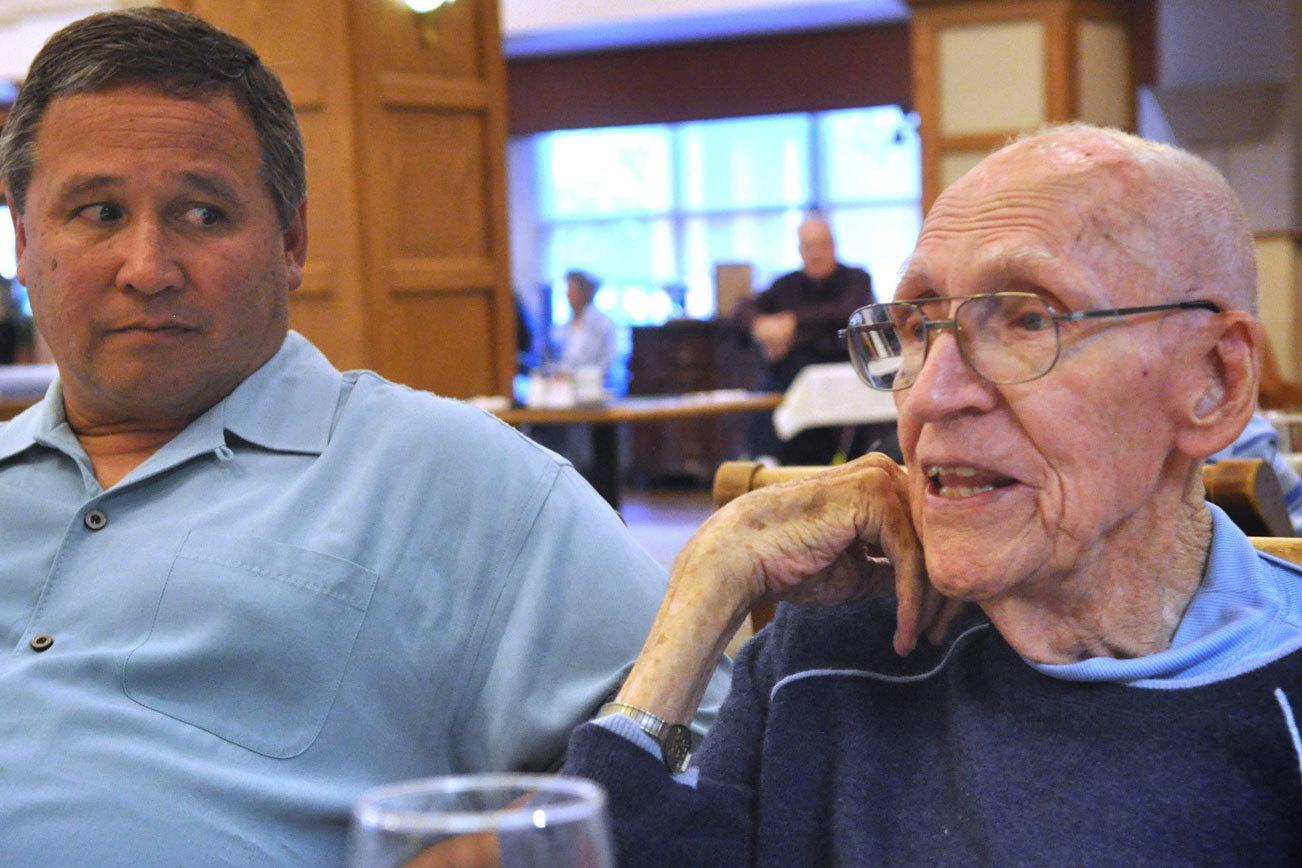If you’re a member of the sandwich generation, you know it’s got nothing to do with ham and two slices of bread.
According to the U.S. Census Bureau, the number of people 65 and older to every 100 people of traditional working ages, is expected to increase from 22 in 2010 to 35 by 2030, when the youngest of the baby boomers will have moved into that 65 and older category. It’s a statistic called the dependency ratio, referring to those who become increasingly dependent on younger generations, among families and society.
Middle-aged adults, then, are finding themselves sandwiched between the costs of raising their children and caring for parents.
There is some understanding among most for the challenges that face Social Security and Medicare as boomers age and leave the workforce. There seems less realization of the lack of adequate guidance and financial help available when aging is complicated by the need for long-term care services and supports, such as those offered through in-home care, assisted living centers and nursing homes.
About 70 percent of those 65 or older will need some level of long-term services and supports, the costs of which are significant and average about $260,000 per person over a lifetime, compared to the median retirement savings of $148,000, reports Washingtonians for a Responsible Future, an effort by AARP, the Alzheimer’s Association, the state’s Long-Term Care Ombudsman and other groups who are seeking solutions to the developing crisis.
While Medicare will cover many expenses for seniors, even paying for costs to diagnose Alzheimer’s disease, for example, the benefit doesn’t assist with long-term care needs. Medicaid can provide long-term care, but requires seniors to spend down their savings to poverty level first. And many care facilities, before they accept a Medicaid patient, require between one and two years of “private pay” from the individual or family, which typically costs between $3,000 and $7,000 a month.
Insurance is rarely an option. Few companies offer it; those that do charge high rates and refuse to cover those with pre-existing conditions.
This means family, usually the children of the elderly, often must become unpaid caregivers. WRF found that 850,000 unpaid family caregivers provided $11 billion worth of services in 2015 in Washington state. But there’s an additional cost as family members leave the workforce to provide care. On average, those caring for family members lose about $300,000 in income and benefits because of a shortened career, which in turn saps their ability to save for their own needs for retirement and potential long-term care.
And fewer family members are expected to be able to offer that service in coming years, shifting the burden for providing that care to the state. By 2030, WRF says, the state could be responsible for an additional $6.3 billion in long-term care costs; compare that to the estimated $3.5 billion above current spending that the state now must provide in two-year budgets to amply fund K-12 education.
The state has hired an actuarial company to prepare a report on financing for long-term services and supports, analyzing two potential solutions for the Legislature by the end of the year. The options suggest:
Establishing a public trust similar to Social Security and unemployment insurance that would be paid by all workers through a payroll tax; or
A public-private effort between the state and private insurers to make long-term care insurance more accessible and affordable to seniors.
There is potential for help at the federal level, too: Earlier this month, U.S. Sen. Patty Murray, D-Washington, helped secure funding to aid Alzheimer’s patients and their families. The Senate’s Labor, Health and Human Services Appropriations Subcommittee, on which Murray serves, approved a $400 million increase in National Institutes of Health funding for Alzheimer’s research as well as funding for a larger bill called the Health, Outcomes, Planning and Education for Alzheimer’s Act to improve access to care and support services for the estimated 5.4 million Americans living with the disease.
If passed into law, the larger act will require Medicare to provide a planning session for those with Alzheimer’s or dementia to offer information on treatment options, the creation of a care plan and discussion of resources and services available in the community.
Sandwich-generation families have been left on their own to find necessary resources and cobble together ways to provide and pay for care. We can build a stronger nation and economy by supporting efforts at the state and federal level that will help provide long-term care now and in the future.
Talk to us
> Give us your news tips.
> Send us a letter to the editor.
> More Herald contact information.

























